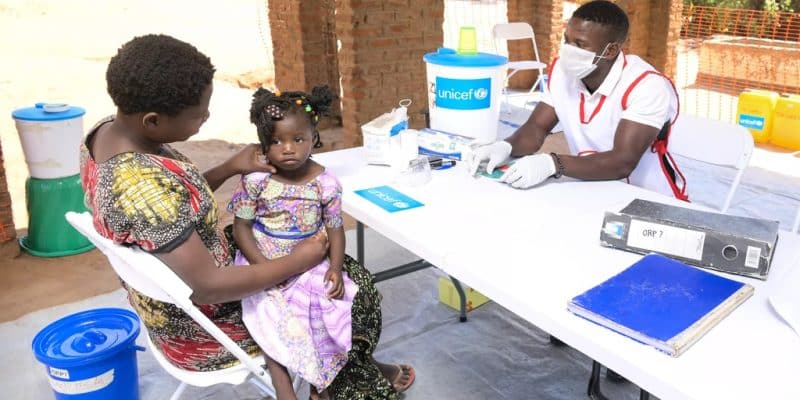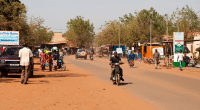As cases of cholera multiply in Africa, the United Nations Children's Fund (UNICEF) publishes a new report describing the critical situation in East Africa. In 2023 alone, over 200,000 victims were recorded in this sub-region of the continent, including more than 3,000 deaths.
Water contaminated with Vibrio cholerae bacteria. This is the cause of the tragedy known as “cholera”. And now, several African sub-regions are on the alert, notably East Africa. In this part of the continent, the acute diarrheal infection has caused more than 200,000 cases, including more than 3,000 deaths in 2023 alone, according to the United Nations Children’s Fund (UNICEF).
In Zambia, the first case was reported in October 2023, and the disease quickly spread, affecting 9,500 people. Among these victims, 374 deaths were recorded, with a case-fatality rate of 3.9%, a “terribly” high figure, decries the UN agency, which in a recent report calls for greater emphasis on child protection. “The cholera epidemic in East Africa is very worrying for the health and well-being of children. It is imperative to invest in systems strengthening to address the root causes of cholera and other public health emergencies, in particular to improve access to safe water, sanitation and hygiene, social behavior change and the quality of case management,” says Etleva Kadilli, Unicef’s Regional Director for Eastern and Southern Africa.
In Zambia, of the 374 victims, around 52% are children under the age of 15. Lusaka, the hardest-hit district, accounts for over 90% of the disease burden. Vulnerable health systems, inadequate access to drinking water and sanitation, and the overcrowded living conditions that prevail in many urban areas are just some of the factors that exacerbate the risk of disease transmission.
The impact of the cholera crisis on children’s education
In Zimbabwe, since the start of the epidemic in February 2023, over 18,000 cases have been reported in the ten provinces, with 71 confirmed deaths and over 300 presumed deaths. Harare and Manicaland provinces are the hardest hit, with one in six new cases involving children under the age of 5.
“The impact on children goes beyond the direct health consequences of cholera. Loss of learning is a major concern. It is imperative that the response is not only rapid, but also takes into account the long-term well-being of these young children,” says Regional Director Etleva Kadilli. While in Zimbabwe the new school year has resumed as planned, in Zambia the escalation of cholera has led to the postponement of the start of the new school year to January 29, 2024 for all schools. Some 4.3 million pupils are affected.
The health crisis affecting East Africa has been exacerbated by drought. Between January 1 and July 10 2022, a cumulative total of 7,796 cases of cholera, including 37 associated deaths (case-fatality rate of 0.5%), were reported in 25 drought-affected districts in Somalia, according to the World Health Fund (WHO).
UNICEF’s solutions to protect children
Since October 2022, the arid northern region of Kenya has also been affected by a cholera epidemic triggered by the impact of prolonged drought. According to the UN agency, the country has recorded more than 7,800 cases and 122 deaths as of March 26, 2023.
Read Also – At COP28, UNICEF will be preaching child protection in the face of the water crisis
To reduce the impact of the cholera epidemic and protect children in the sub-region, and in Africa in general, where cholera is rife, Unicef, at its level, supplies cholera treatment centers, supports oral vaccination against cholera, and organizes back-to-school cholera prevention campaigns.
The Fund also provides technical assistance such as group coordination, technical assessments and water quality control, and supports Ministries of Health in several countries by broadcasting public service announcements on cholera on national TV and radio stations. Unicef calls on all governments to do likewise, to save as many children as possible.
Inès Magoum







